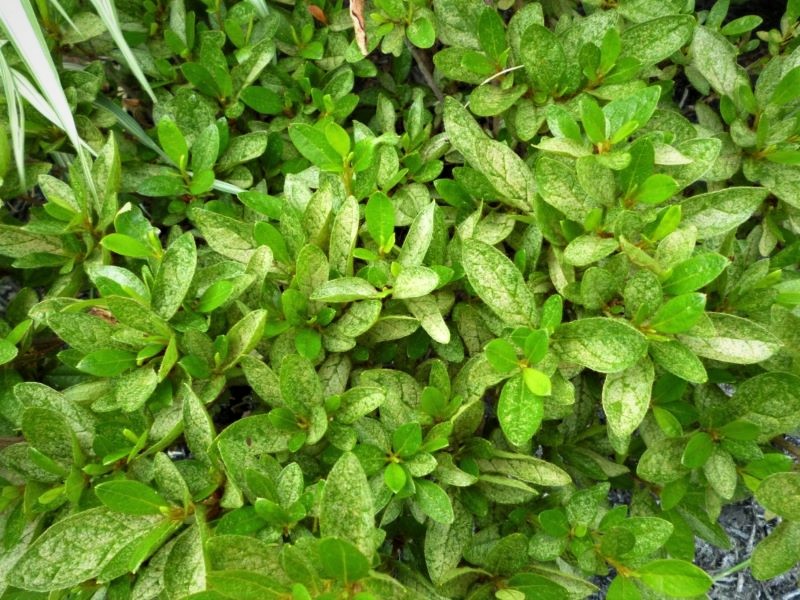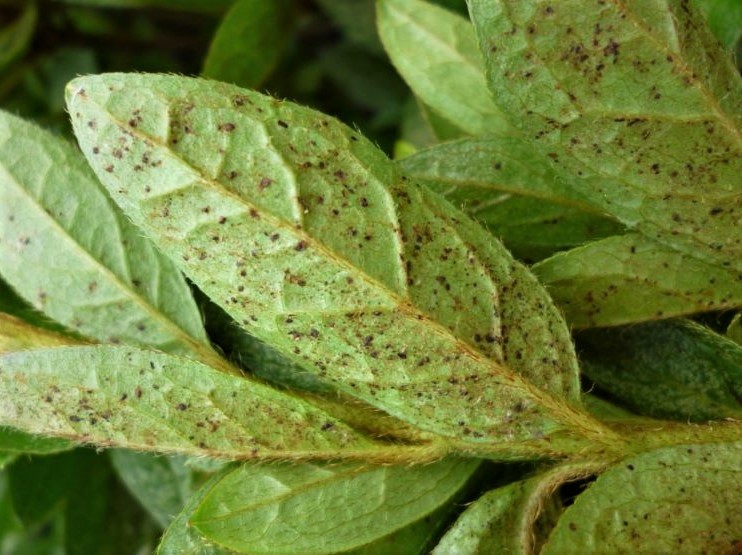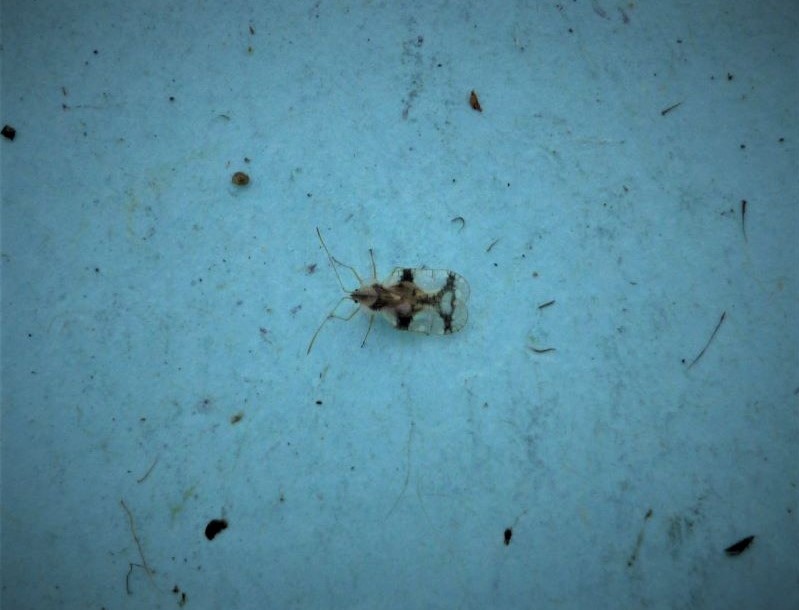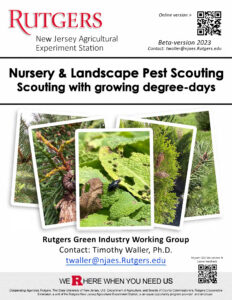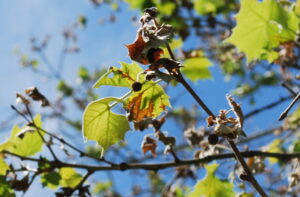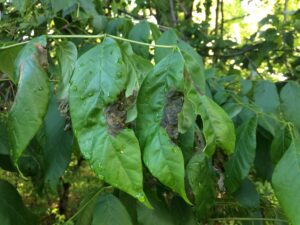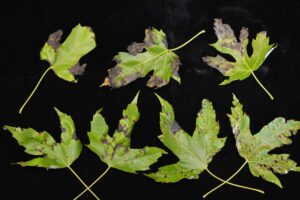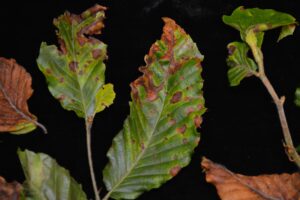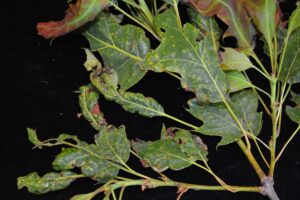Cooley Spruce Gall Adelgid (1850-1950 GDD = galls open): Colorado spruce (especially green forms), Sitka and Oriental spruce, and Douglas-fir share this pest’s two host life cycles. Mature adult females lay eggs at the tips of branches. These eggs hatch and the immatures move to new growth and start feeding. The combined feeding and salivary secretions induce the development of a bright green, oval “pineapple” gall on the terminals (as opposed to galls at the base of new growth on Norway spruce from the Eastern spruce gall adelgids). By midsummer, the gall will turn brown and crack open, as the adelgids within mature and emerge as adults. These winged adults migrate to Douglas-fir (or another spruce) and spend the remainder of the summer feeding on the needles, covered with cottony wax.
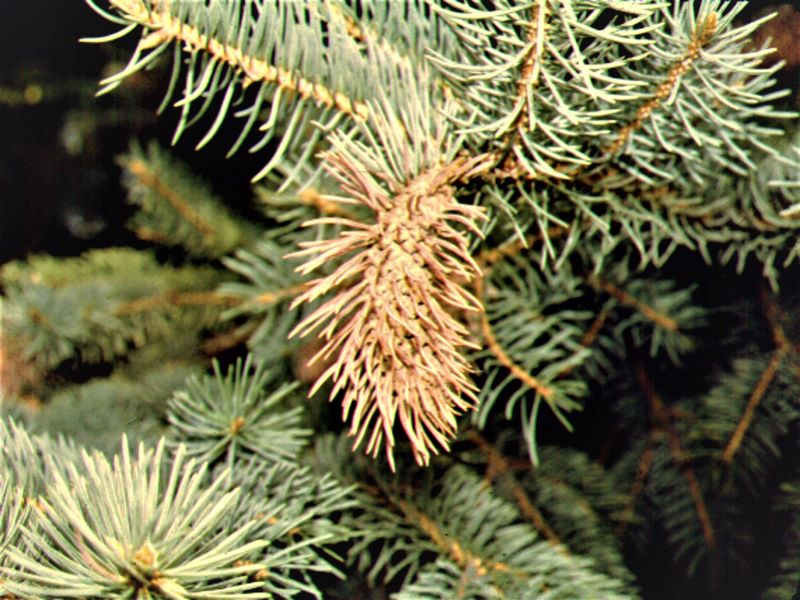
During late July or early August the adult Cooley spruce gall adelgids will emerge from the opened brown pineapple shaped galls. (Photo Credit: Steven K. Rettke, Rutgers Coop. Ext.)
Sometimes Douglas-fir is so heavily attacked that needles are spotted, bent, or distorted. Two or more generations can occur on Douglas-fir through the following season (Christmas tree growers will treat Douglas fir when new growth is 3-4 inches). By next fall another winged generation flies back to spruce and lays eggs for the cycle to repeat itself.
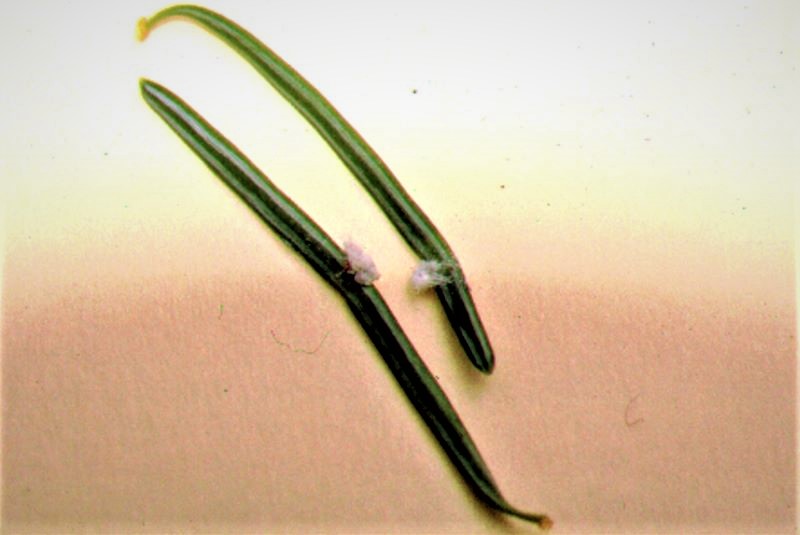
After the Cooley spruce gall adelgid winged adults emerge from the “pineapple” galls on spruce some will relocate & infest Douglas-fir needles. They will remain on this host for the remainder of the summer. (Photo Credit: Steven K. Rettke, Rutgers Coop. Ext.)
Control by pruning out galls when seen before they open in mid-summer. Place sticky traps out in summer (Douglas-fir or spruce) (1850-1950 GDD) to determine the timing to spray adults with insecticidal soap (+ sticker). In southern NJ some of the tip “pineapple” galls on spruce will soon open up, and the winged adults will emerged. Except to improve the aesthetic appearance of the trees, there is nothing to be gained by picking off the galls after they have opened. Future control windows will occur during the fall or early spring months, against the overwintering females located at the bases of terminal buds. Some possible treatments include horticultural oil, carbaryl (Sevin), insecticidal soap, or imidacloprid (Merit).
The Landscape Pest Notes for July 2023 contains only insect/mite pests & a couple of predators commonly seen during the month. Contained below are 16 additional pests or predators that appear in the order they are listed as follows: Pine needle scale, Fall webworm, Obscure scale, Pitch mass borer, Two banded Japanese weevil, Aphids, Cicada killer, Juniper webworm, Sapsucker, White pine weevil, Peach tree borer, White waxy lady beetle, Japanese beetle, Oriental beetle, Dogwood sawfly, & Plant leaf galls. [Read more…]

